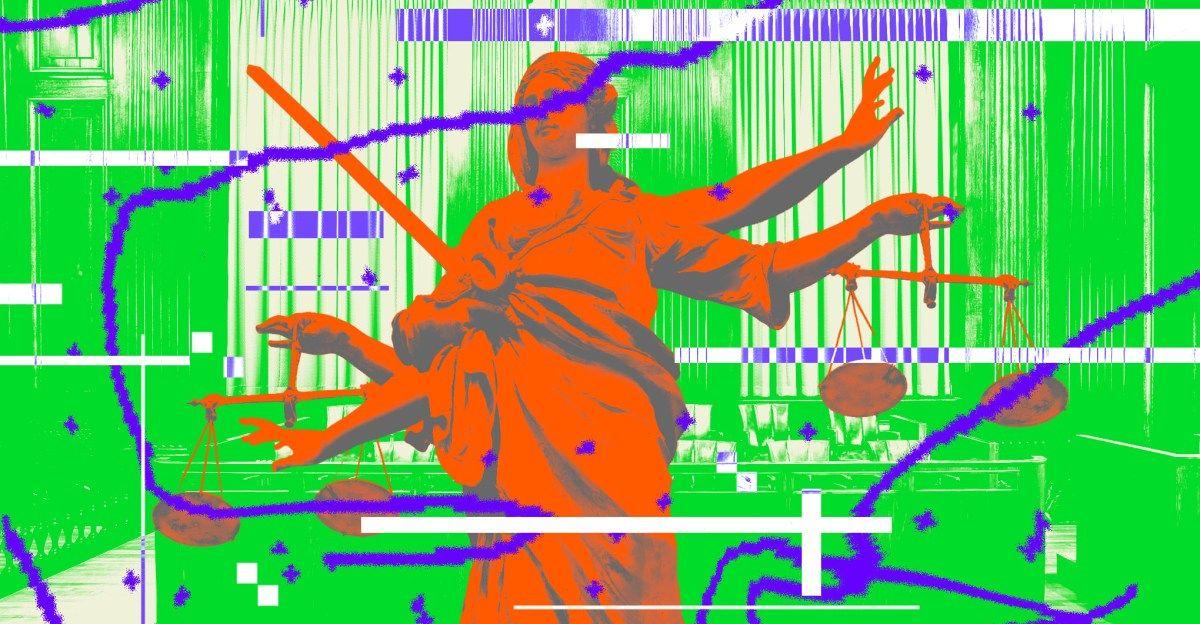New York Enacts Law to Monitor and Regulate AI Use in State Government
2 Sources
2 Sources
[1]
New York state government to monitor its use of AI under a new law
ALBANY, N.Y. -- New York state government agencies will have to conduct reviews and publish reports that detail how they're using artificial intelligence software, under a new law signed by Gov. Kathy Hochul. Hochul, a Democrat, signed the bill last week after it was passed by state lawmakers earlier this year. The law requires state agencies to perform assessments of any software that uses algorithms, computational models or AI techniques, and then submit those reviews to the governor and top legislative leaders along with posting them online. It also bars the use of AI in certain situations, such as an automated decision on whether someone receives unemployment benefits or child care assistance, unless the system is being consistently monitored by a human. State workers would also be shielded from having their hours or job duties limited because of AI under the law. State Sen. Kristen Gonzalez, a Democrat who sponsored the bill, called the law an important step in setting up some guardrails in how the emerging technology is used in state government.
[2]
New York state government to monitor its use of AI under a new law
ALBANY, N.Y. (AP) -- New York state government agencies will have to conduct reviews and publish reports that detail how they're using artificial intelligence software, under a new law signed by Gov. Kathy Hochul. Hochul, a Democrat, signed the bill last week after it was passed by state lawmakers earlier this year. The law requires state agencies to perform assessments of any software that uses algorithms, computational models or AI techniques, and then submit those reviews to the governor and top legislative leaders along with posting them online. It also bars the use of AI in certain situations, such as an automated decision on whether someone receives unemployment benefits or child care assistance, unless the system is being consistently monitored by a human. State workers would also be shielded from having their hours or job duties limited because of AI under the law. State Sen. Kristen Gonzalez, a Democrat who sponsored the bill, called the law an important step in setting up some guardrails in how the emerging technology is used in state government.
Share
Share
Copy Link
New York Governor Kathy Hochul signs a law requiring state agencies to review and report on their use of AI, setting guidelines for its application in government operations.

New York Introduces Landmark AI Monitoring Law
In a significant move towards regulating artificial intelligence in government operations, New York State has enacted a new law requiring state agencies to monitor and report on their use of AI technologies. Governor Kathy Hochul, a Democrat, signed the bill into law last week, following its passage by state lawmakers earlier this year
1
2
.Key Provisions of the Law
The legislation introduces several important measures:
-
Mandatory AI Assessments: State agencies must conduct thorough reviews of any software utilizing algorithms, computational models, or AI techniques
1
2
. -
Public Reporting: The results of these assessments must be submitted to the governor and top legislative leaders, as well as posted online for public access
1
2
. -
Restrictions on Automated Decision-Making: The law prohibits the use of AI for certain critical decisions, such as determining eligibility for unemployment benefits or child care assistance, unless the system is under consistent human supervision
1
2
. -
Worker Protections: State employees are safeguarded against having their work hours or job responsibilities reduced due to AI implementation
1
2
.
Implications and Objectives
This law represents a proactive approach to addressing the growing influence of AI in government operations. State Senator Kristen Gonzalez, the bill's sponsor, described it as "an important step in setting up some guardrails in how the emerging technology is used in state government"
1
2
.The legislation aims to achieve several objectives:
-
Transparency: By mandating public reporting, the law promotes openness about how AI is being utilized in state agencies.
-
Accountability: Regular assessments and human oversight requirements ensure that AI systems are not operating unchecked.
-
Employee Protection: The law acknowledges concerns about AI's impact on the workforce and takes steps to protect state workers.
-
Ethical AI Use: By restricting automated decision-making in sensitive areas, the law seeks to maintain human judgment in critical government functions.
Related Stories
Broader Context and Significance
New York's initiative comes amid growing national and global discussions about AI regulation. As AI technologies rapidly advance and permeate various sectors, governments are grappling with how to harness their benefits while mitigating potential risks.
This law positions New York as a leader in AI governance within the public sector. It could serve as a model for other states or even federal legislation as the United States continues to develop its approach to AI regulation.
The implementation of this law will likely be watched closely by policymakers, tech companies, and civil rights advocates alike, as it may provide valuable insights into the challenges and effectiveness of government-focused AI regulation.
References
Summarized by
Navi
Related Stories
New York Governor Hochul signs RAISE Act as state AI safety laws face federal challenge
20 Dec 2025•Policy and Regulation

Kathy Hochul proposes major changes to New York's AI bill amid intense tech lobbying pressure
11 Dec 2025•Policy and Regulation

New York Pioneers Ban on AI-Driven Rent Price Fixing
17 Oct 2025•Policy and Regulation

Recent Highlights
1
Google Gemini 3.1 Pro doubles reasoning score, beats rivals in key AI benchmarks
Technology

2
ByteDance's Seedance 2.0 AI video generator triggers copyright infringement battle with Hollywood
Policy and Regulation

3
ChatGPT cracks decades-old gluon amplitude puzzle, marking AI's first major theoretical physics win
Science and Research





